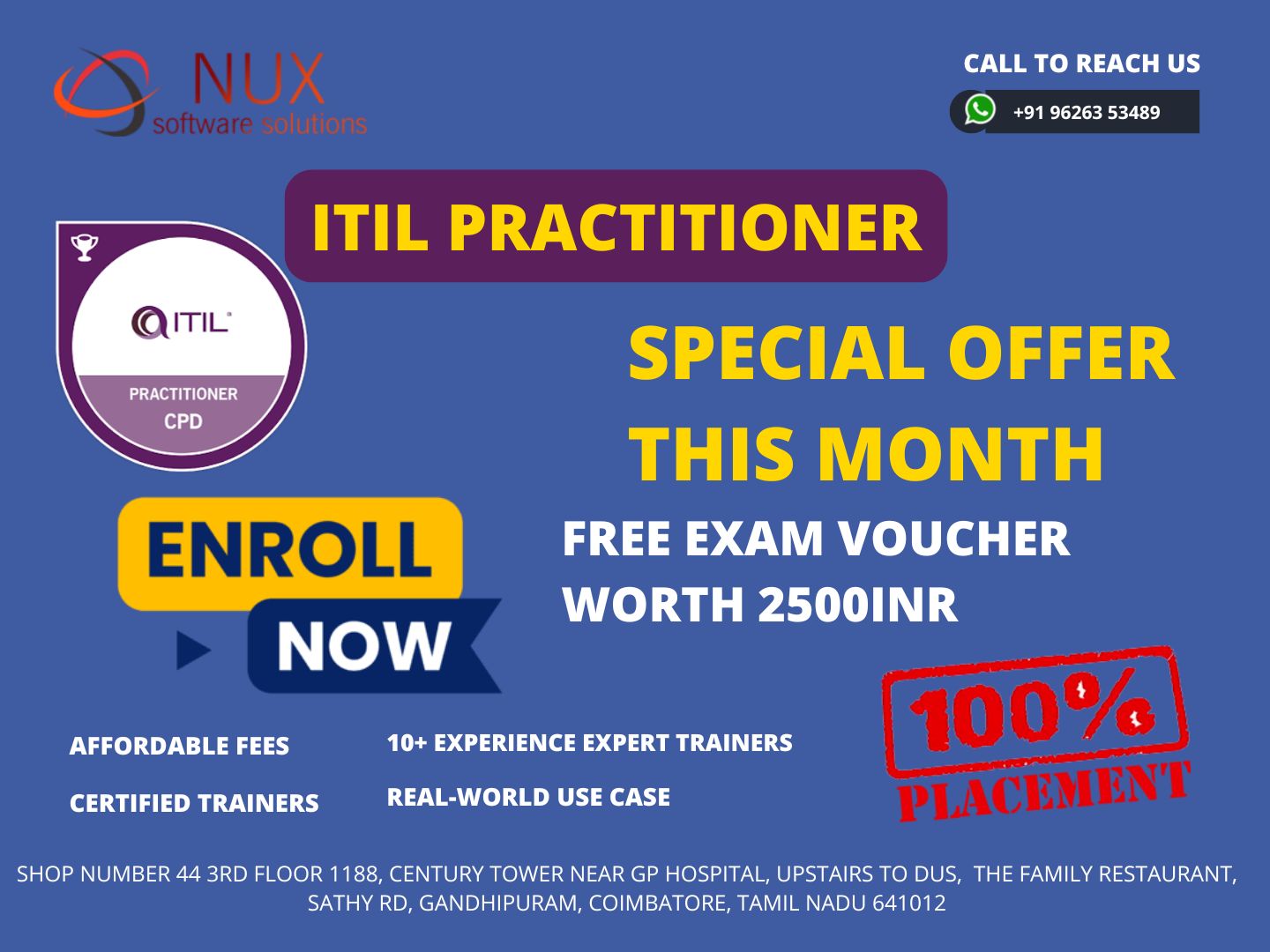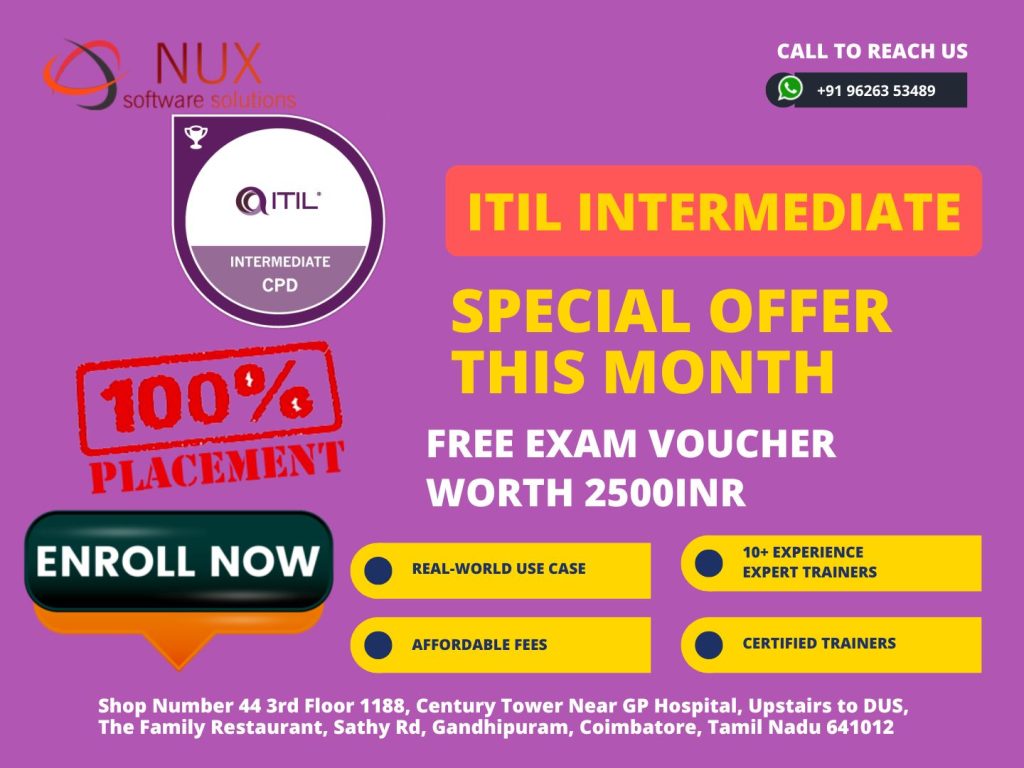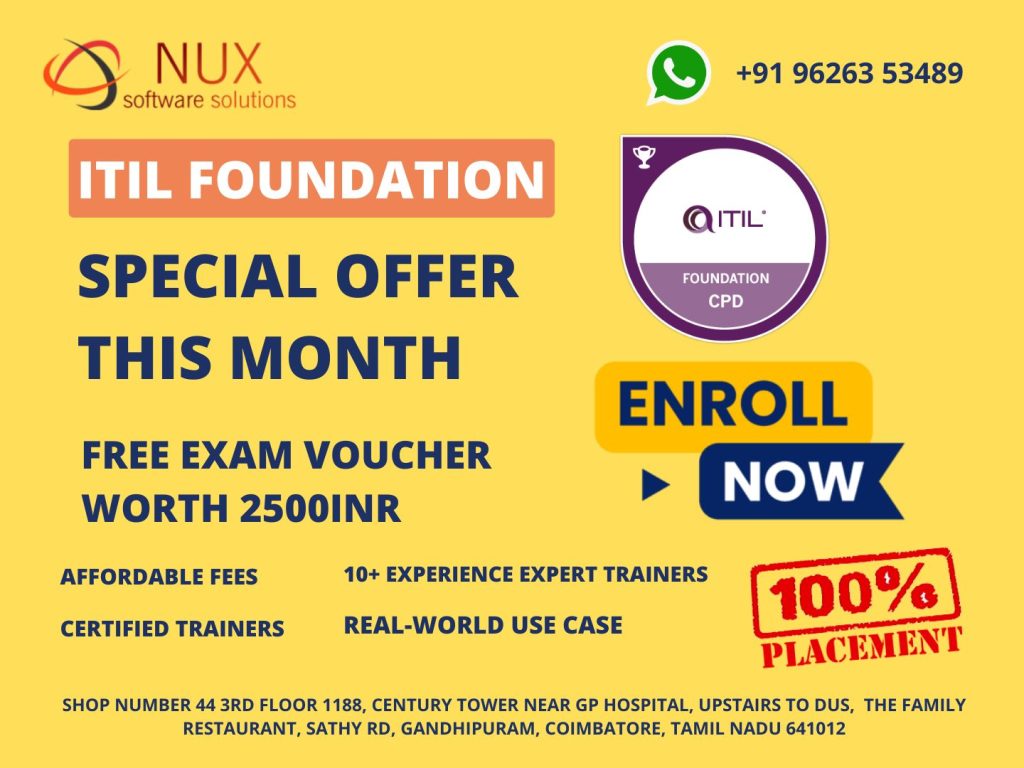ITIL Practitioner Training in Coimbatore

Course Overview
ITIL Practitioner is an advanced-level certification that focuses on the practical application of the ITIL framework. It bridges the gap between theoretical knowledge and real-world implementation, empowering IT professionals to adopt and adapt ITIL concepts for continual service improvement (CSI).
Unlike other ITIL certifications that emphasize “what” and “why,” ITIL Practitioner dives into the “how.” The course covers critical capabilities such as organizational change management, communication, and measurement/metrics, helping professionals drive improvement initiatives with confidence and clarity.
The training is ideal for individuals who already hold the ITIL Foundation certification and are looking to develop hands-on skills to manage and improve IT services.
What You Will Learn
How to apply ITIL principles in a real-world environment
Using metrics and measurement for continual service improvement
Effective communication techniques for change adoption
Driving organizational change with minimal disruption
Adopting ITSM best practices to meet business goals
Why Choose ITIL Practitioner Certification?
Practical approach focused on real-world scenarios
Complements all intermediate ITIL modules
Enhances your ability to implement ITSM strategies
Recognized globally by IT organizations and employers
Provides credits toward ITIL Expert certification
Who Should Take This Course?
IT support and operations professionals
Service managers and team leads
Process owners and consultants
Anyone aiming to improve IT service delivery in their organization
Training at Our Institute in Coimbatore
At our training center, we provide:
Industry-expert instructors with ITIL Practitioner certification
Real-time project use cases and exercises
High-quality course materials and practice questions
Flexible batch timings and online/offline options
Continuous learning support and exam guidance
Master the tools, techniques, and mindsets needed to implement ITIL successfully. Enroll in the ITIL Practitioner course in Coimbatore and elevate your IT service management expertise.
ITIL Practitioner Syllabus
Modules
Chapter 1 :
1.1 Apply the concept of 'adopt and adapt' when using ITIL guidance in a given context
1.2 Analyze the importance of each element of a service when planning and implementing service improvements
Chapter 2 :
2.1 Apply the ITSM guiding principles in a given context when planning and implementing service improvements
Chapter 3 :
3.1 Describe the purpose and main outputs of each step of the CSI Approach
3.2 Use the CSI Approach tools and techniques successfully in a given specific context
3.3 Apply the CSI approach to a given context, demonstrating an understanding of the critical competences, the guiding principles and the scientific method
Chapter 4 :
4 4.1 Define critical success factors (CSFs) using a relevant hierarchical approach
4.2 Determine key performance indicators (KPIs) to underpin a critical success factor
4.3 Analyze CSFs and KPIs in a given context to ensure that they are balanced between the four categories
4.4 Define a current state assessment in a given context
4.5 Design a report in a given context
4.6 Apply knowledge of metrics and measurement when planning and implementing improvements, particularly in the context of the CSI approach and/or the guiding principles
Chapter 5 :
5 5.1 Explain the nature, value, importance and benefits of good communication
5.2 Explain communication principles
5.3 Explain the purpose and value of communication tools and techniques
5.4 Use relevant communication tools and techniques to support improvement in a given context
5.5 Apply knowledge of communications when planning and implementing improvements, particularly in the context of the CSI approach and/or the guiding principles
Chapter 6 :
6 6.1 Explain the role and impact of OCM in successful improvement
6.2 Describe the purpose and value of OCM activities
6.3 Use relevant OCM tools and techniques to support improvement in a given context
6.4 Apply knowledge of OCM when planning and implementing improvements, particularly in the context of the CSI approach and/or the guiding principles


